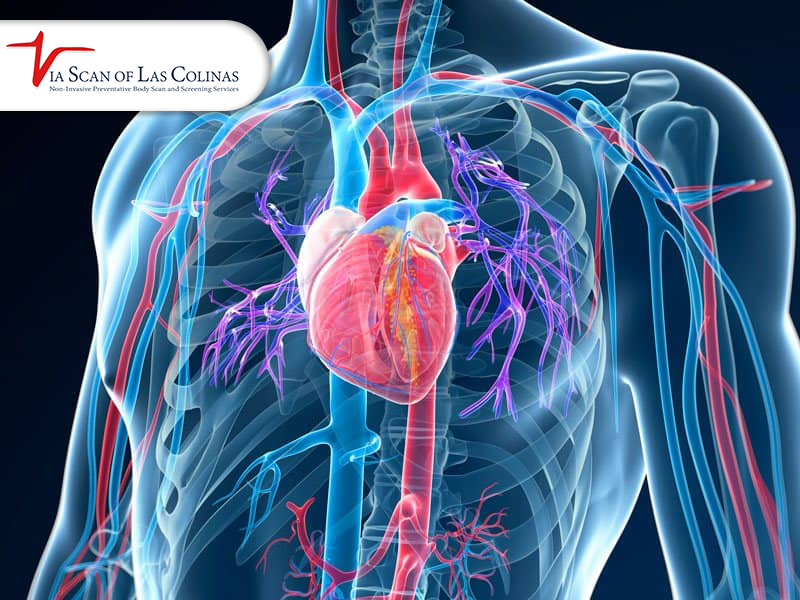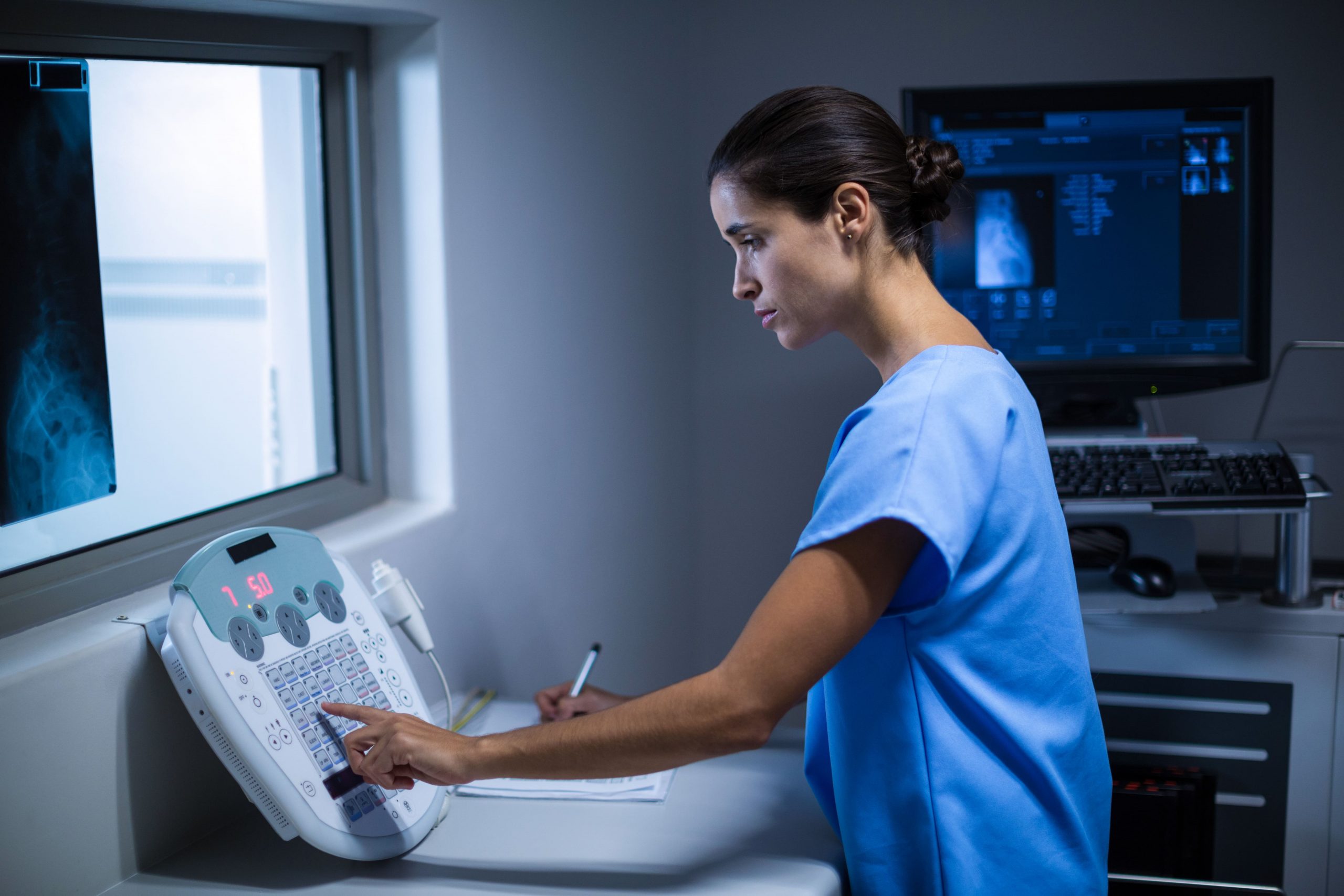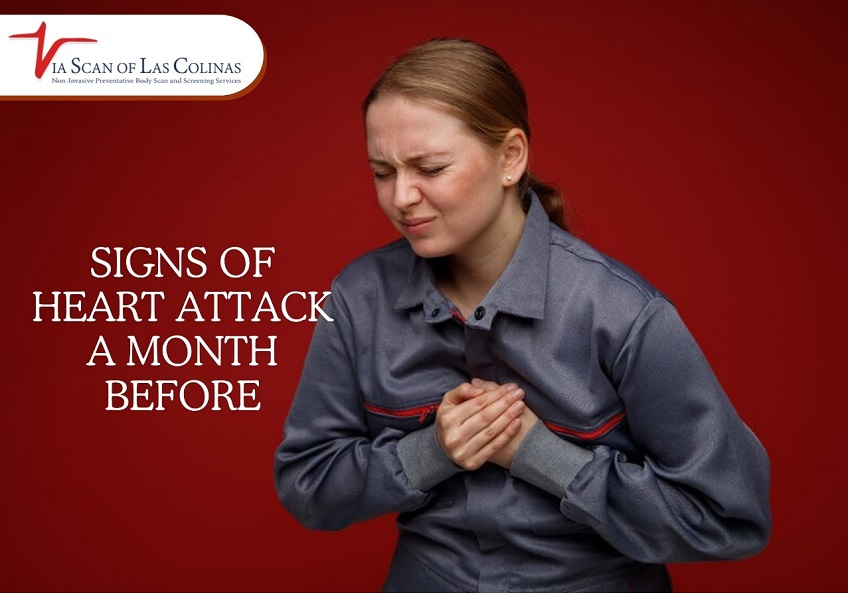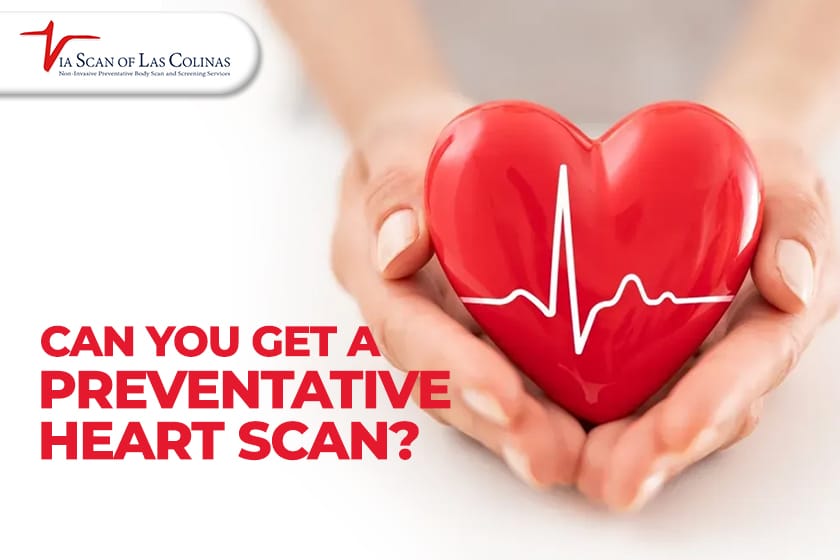A cardiac computed tomography (CT) scan is a technique that produces high-quality, three-dimensional (3D) pictures of your heart, major arteries, and surrounding structures by using numerous X-ray beams at different angles. Cardiac CT makes use of cutting-edge CT technology to more clearly see your heart’s anatomy and related blood veins, either with or without intravenous contrast (dye). Your healthcare professional can get high-resolution, three-dimensional pictures of your heart and major vessels with multi-slice scanning. This blog will look deeply into CT scan images and if a chest CT scan shows heart problems.
What would a heart CT be able to show?
An evaluation of the heart and accompanying blood vessels is done with a non-invasive, painless heart CT scan to look for any artery blockages or narrowing, as well as any issues with the heart’s pumping action that could point to potential heart disease. In a CT scan, an IV is used to provide a dye, commonly referred to as contrast. This scan helps identify a variety of cardiac diseases by enabling us to track the blood flow via blood arteries and the heart.
A heart or chest CT scan shows heart problems, and your medical professional will have access to:
- Arteries in the heart provide it with blood.
- Heart muscles, valves, and chambers.
- Veins in the lungs.
- Abdominal aorta, as well as the thoracic aorta.
- Pericardium (Sac that surrounds your heart).
Can a CT scan detect heart problems?
Your doctor may recommend a CT scan of your chest if you are showing signs of heart disease. When diagnosing cardiac illness, a CT (computed tomography) scan is the recommended approach and is a highly common operation. Traditional metrics for risk factor levels include cholesterol and blood pressure. Researchers concurred that a CT scan would be a more accurate predictor of risk than other methods. A physician can use this to determine whether there are any health issues affecting the organ or the blood vessels around it. Chest CT scan shows heart problems, including:
- Anomalies in the congenital heart
- Determining one’s heart attack risk
- Examining the fluid in the sac that surrounds the heart, measuring the heart’s pumping efficiency, and looking for signs of plaque accumulation and coronary artery constriction, which medical professionals refer to as coronary artery disease.
- Anatomy of the heart to look for indications of a heart attack, such as scarring on the heart muscle
- Identifying anomalies in the big boats
- Determining if a post-operative coronary artery bypass graft is still open
Does a chest CT scan show heart blockages?
For best results, a heart blockage must be discovered early. There are several methods for identifying heart blockages. Start with a routine examination and let your doctor know that you’ve been experiencing cardiac problems. The complete heart and the blood arteries around it may be seen on a CT scan of the heart. It may also demonstrate artery-clogging calcium accumulation that obstructs blood flow. Physicians may refer to this as a heart CT scan for calcium scoring or coronary artery calcium scoring. Physicians may occasionally recommend coronary angiography, an invasive technique that involves injecting a contrast dye directly into the arteries to reveal any blockages.
Can a CT scan show a heart attack?
A chest CT scan, also known as a heart screening or heart scan, is a medical procedure used to identify calcium deposits in the plaque of individuals suffering from heart disease. They are a useful tool for detecting atherosclerosis before symptoms appear. Studies have shown that a chest CT scan can show heart problems, and with early detection, preventative measures can be taken. You have more coronary atherosclerosis and more coronary calcium you have. This increases your risk of developing cardiovascular issues later on. It’s crucial to keep in mind that a CT scan cannot accurately forecast events like a heart attack since certain types of coronary disease do not manifest in this way. To get more precise images of the arteries in your heart, your doctor could also request a coronary CT angiography (CTA) in addition to a CT scan.
Can a CT scan detect blocked arteries?
CT scans have demonstrated their value as a diagnostic tool throughout time for evaluating arterial health, identifying heart blockages, and identifying other vascular health problems. The arteries supplying the heart with blood are examined with a CT scan. It creates cross-sectional pictures of the heart and blood arteries using X-rays. The CT scanner provides digital data by taking a succession of X-ray beam pictures around the heart. The data is processed by a computer to produce cross-sectional images, also known as heart slices. Sometimes, a contrast agent, an iodine-based dye, is injected into the circulation to improve the pictures.
Choose Our Preventive Chest CT Scan
Early Detection Saves Lives!
-
- Accurate
- Quick Result
- Affordable

Conclusion
Early detection and the findings of your chest CT scan help physicians to identify heart diseases and take preventative measures. The test’s outcomes will determine the precise recommendations. There might not be any modifications to your existing treatment regimen. Your doctor could, however, advise you to alter your diet and exercise regimen. Not only may leading a healthy lifestyle prevent heart disease, but it can also mitigate its symptoms. In certain instances, medical professionals advise doing further testing to validate the results of the CT scan. It’s now simpler than ever to take charge of your health thanks to Via Scan Of Las Colinas chest CT scans and calcium score testing provided in Las Colinas.






